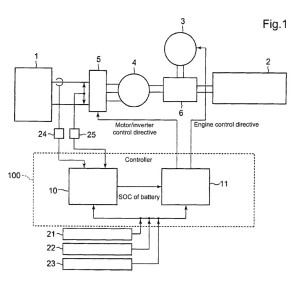Agents of Invention, Part 1
by T.C. Deveau, Intellectual Property Correspondent & Law Library GRA
Welcome to the first installment of Agents of Invention, our new series exploring the exciting world of patent agents by the law library’s own T.C. Deveau. T.C. has a PhD in Neuroscience and has worked as a patent agent for almost 7 years. He’s currently in the final year of GSU Law’s part-time program.
Imagine helping entrepreneurs ensure that they actually own the exciting inventions that they’ve dedicated so many hours to creating. Imagine collaborating with attorneys and scientists in an environment that where your technical background can make an enormous difference. Imagine a career that helps prepare you for a sophisticated area of legal practice, but doesn’t require a J.D.
If this scenario sounds appealing, have you ever considered becoming a patent agent? A patent agent is someone with a science or engineering degree (i.e., bachelors, masters, Ph.D.) who writes and prosecutes patents on behalf of inventors.[1] Often, these patent agents/prosecutors work at law firms, but they can also work for other organizations, or even for themselves.

Patent agents have taken and passed the U.S. Patent and Trademark Office Registration Exam (the “Patent Bar”), which allows them to represent clients (inventors, companies, or other organizations such as universities) in front of the USPTO. Patent agents can submit patent documentation to the Office and participate in the substantive examination of patents. Basically, patent agents can help clients with anything relating to obtaining a patent from the USPTO.
“Anything relating to…” sounds really broad, but it generally consists of the following:
- Consulting with the client about their invention;
- Working with them to determine a filing strategy that best fits your client’s interest (and budget);
- Assisting with preparation and filing of the application;
- Working with USPTO Examiners to get the application allowed; and
- Working with the USPTO on procedural issues so that the patent is ready for publication and issuance.
For a given client, you may take a patent from start to finish in this manner, for others, you may only work on certain pieces of the puzzle.
While patent agent work is largely U.S.-centric, it’s important to keep in mind that the United States is not the only jurisdiction where intellectual property rights may be relevant or meaningful for a given client. Patent agent duties often include, coordinating patent application efforts not only in the U.S., but in foreign jurisdictions as well, such as Europe, China, and Japan. This involves working with attorneys or agents in other countries to further your client’s interest in these jurisdictions.
At law firms in particular, the duties of a patent agent often overlap significantly with those of patent attorneys involved in patent prosecution, although an agent’s duties are more limited in scope. While agents can help clients obtain patents, they cannot be involved in matters that involve giving legal opinions. Aspects of the field that follow grant of a patent, including patent invalidity, infringement, and licensing, must be handled by attorneys. When clients have questions like “what can I do with my patent after it is has been issued?” or “I think our competitor is infringing our patent, can you investigate it?,” it’s time to get an attorney involved.
Whether you’re interested in becoming a patent agent (remember, no J.D. required) or a patent attorney, GSU provides great opportunities to students looking to break into the field of patent prosecution. GSU provides many courses tailored to patent law, both from a doctrinal and a practical experiential perspective.
It is common for patent agents in and around Atlanta to enroll in the part-time J.D. program at GSU and take the next steps towards becoming an attorney. The part-time program provides a lot of flexibility for those looking to further their careers, and firms in the area even provide incentives to patent agents for going to law school (such as tuition reimbursement). While at GSU Law, students can further immerse themselves in the world of intellectual property beyond patents. GSU offers classes covering related topics like copyright, trademark, trade secrets, and contract drafting, all of which are quite helpful in becoming a well-rounded IP attorney.
Some of you reading this may be thinking, “but I’m already in law school—why do I care about patent agents?” Well, it’s not uncommon for students at GSU to take the Patent Bar, skipping the agent position entirely. Indeed, many students find GSU Law coursework—classes like Patent Law and Patent Drafting & Prosecution—to be a huge help in their Patent Bar prep (look for coverage of this in a future post).
Today, I’ve given you an overview of the patent agent position, discussing what it involves and discussing some of the requirements of the field. Stay tuned for our next installment of Agents of Innovation, where I’ll describe a thrilling “day in the life” of a patent agent.
[1] Did I mention that this position also allows you to call yourself a ‘prosecutor’? The ‘patent prosecution’ process refers to the process of applying for and pursuing patents.



You must be logged in to post a comment.